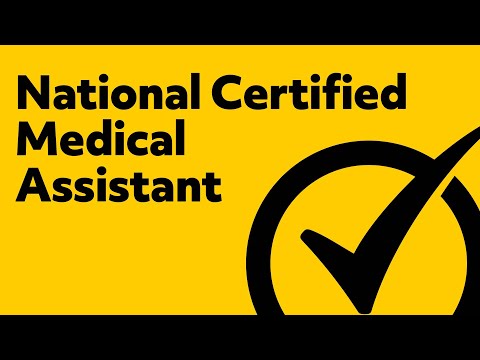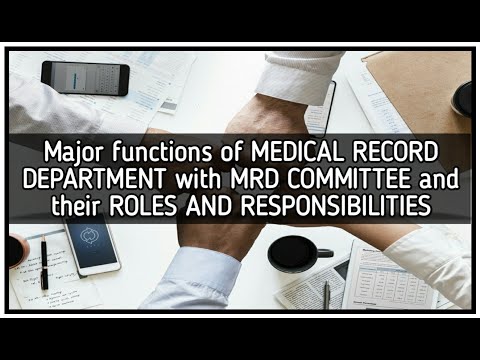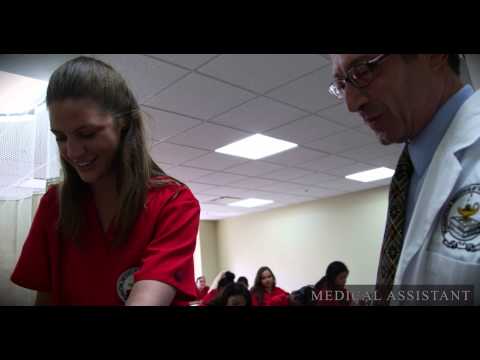The Education Required to Be a Medical Assistant
Contents
- The Different Types of Medical Assistants
- The Education Required to Be a Medical Assistant
- The Clinical Responsibilities of a Medical Assistant
- The Administrative Responsibilities of a Medical Assistant
- The Importance of Interpersonal Skills for Medical Assistants
- The Importance of Being Organized as a Medical Assistant
- The Importance of Being Detail Oriented as a Medical Assistant
- The Importance of Being able to Multi-Task as a Medical Assistant
- The Physical Demands of Being a Medical Assistant
- The Rewards of Being a Medical Assistant
The education required to be a medical assistant can vary by state. In most cases, Medical assistants need to have a high school diploma or equivalent, although some states may require postsecondary education, and most employers prefer to hire candidates with formal medical assistant training from an accredited institution.
Checkout this video:
The Different Types of Medical Assistants
There are several different types of medical assistants, each with their own specific duties and responsibilities. The most common type of medical assistant is the clinical medical assistant, who works closely with patients and doctors in a clinical setting. Clinical medical assistants may take patient histories, assist with examinations, and give injections. They may also schedule appointments and keep medical records
Other types of medical assistants include administrative medical assistants and ophthalmic medical assistants. Administrative medical assistants handle office duties such as scheduling appointments, billing insurance companies, and ordering supplies. Ophthalmic medical assistants work primarily with patients who have eye problems and need assistance with vision testing and the fitting of eyeglasses and contact lenses.
The Education Required to Be a Medical Assistant
Medical assistants are an important part of the healthcare team. They provide administrative and clinical support to doctors and other medical staff. If you’re interested in becoming a medical assistant, you’ll need to complete a medical assistant program at a community college, vocational school, or technical school.
Most medical assistant programs take about one year to complete, although some programs may take up to two years. During your training, you’ll take courses in anatomy, physiology, Medical Terminology office practices, and coding. You’ll also get hands-on experience in a clinical setting. After you graduate from a medical assistant program, you can take the Certified Medical Assistant (CMA) exam offered by the American Association of Medical Assistants (AAMA). Once you pass the exam, you’ll be able to use the CMA credential after your name.
The Clinical Responsibilities of a Medical Assistant
Medical assistants play an important role in healthcare, providing support to patients, doctors, and other members of the healthcare team. While the exact duties of a medical assistant may vary depending on the state in which they work and the specific needs of their employer, there are some responsibilities that are common to most medical assistants.
Clinical Responsibilities:
Medical assistants typically provide basic patient care. This may include taking vital signs such as blood pressure, pulse, and temperature; recording medical histories; preparing patients for examination; and assisting the physician during the exam. Medical assistants may also be responsible for scheduling appointments, maintaining Medical records handling correspondence, and coding insurance forms. In some states, medical assistants may be able to give injections or perform other simple medical procedures under the direct supervision of a physician.
Administrative Responsibilities:
In addition to their clinical duties, medical assistants also have many administrative responsibilities. These tasks may include answering phones, greeting patients, scheduling appointments, handling payments and insurance forms, and maintaining medical records Medical assistants may also be responsible for ordering office supplies and keeping track of inventory.
The Administrative Responsibilities of a Medical Assistant
Medical assistants play a vital role in today’s healthcare industry. They are often the first person a patient will see when they enter a doctor’s office, and they play an important role in maintaining the smooth flow of operations in medical facilities.
Most medical assistants have at least a high school diploma, although some positions may require postsecondary education, and many medical assistants choose to pursue certification through professional organizations such as the American Association of Medical Assistants or the National Healthcare Association.
As a medical assistant, you can expect to perform a variety of administrative duties, such as answering phones, scheduling appointments, and handling insurance paperwork. You will also be responsible for helping maintain patient records and performing basic clinical tasks, such as taking vital signs or drawing blood. In some states, you may also be allowed to administer medication or injections under the supervision of a licensed healthcare provider.
The Importance of Interpersonal Skills for Medical Assistants
Because they play such an important role in patient care, medical assistants must be able to put patients at ease and build rapport quickly. They must be able to communicate effectively with patients, as well as with other members of the healthcare team.
Medical assistants must also be able to handle a variety of tasks simultaneously and stay calm under pressure. They must have strong organizational skills and be detail oriented in order to complete tasks accurately.
In addition to being people-oriented and having strong communication skills, medical assistants must also have the ability to empathize with patients. They must be able to understand and respond to the emotions that patients are experiencing.
The Importance of Being Organized as a Medical Assistant
One of the most important qualities of a medical assistant is organization. This individual must be able to keep track of patients, appointments, and medical records. They might also be responsible for managing the office and handling insurance paperwork. A medical assistant must be able to juggle multiple tasks and prioritize their work.
The Importance of Being Detail Oriented as a Medical Assistant
As a medical assistant, you will be responsible for a variety of tasks that require intense concentration and attention to detail. You will need to be able to multitask and keep track of numerous patients at once while still providing quality care.
Medical assistants play a vital role in the healthcare team by providing support to doctors and nurses and performing essential tasks such as taking patient medical histories, measuring vital signs, preparing patients for examinations, assisting with procedures, and more.
The education required to be a medical assistant varies by state, but most require at least a high school diploma or equivalent. Some states also require certification from an accredited medical assistant program. The content of these programs typically include medical terminology, anatomy and physiology, pharmacology, medical office procedures, and more.
If you are detail oriented, have good communication skills, and are able to multitask effectively, then a career as a medical assistant may be right for you!
The Importance of Being able to Multi-Task as a Medical Assistant
One of the most important skills for a medical assistant is the ability to multitask. Medical assistants must be able to handle a variety of tasks at one time, such as answering telephones, scheduling appointments, and handling billing and insurance paperwork. They also must be able to keep accurate medical records and maintain a clean and well-organized office.
The Physical Demands of Being a Medical Assistant
The job of a medical assistant is to support the work of doctors and nurses in medical offices and clinics. They are responsible for a variety of tasks, from greeting patients and scheduling appointments to taking medical histories and measuring vital signs.
Medical assistants must be able to handle both the physical and emotional demands of the job. They must be able to lift and move patients, as well as handle blood and other bodily fluids. They also need to be able to deal with the stress of working in a fast-paced environment and have a positive attitude towards patients.
Those who wish to become medical assistants must have at least a high school diploma or equivalent. Many employers prefer candidates who have completed an accredited medical assistant program. These programs typically last one year and include both classroom and clinical instruction.
The Rewards of Being a Medical Assistant
There are many reasons why someone might want to become a medical assistant. Maybe you’re interested in the healthcare field but don’t want to go through the lengthy and expensive process of becoming a doctor or nurse. Or maybe you’re more interested in the administrative side of things and want to work in a medical office setting. Whatever your reasons, there are many benefits to becoming a medical assistant.
First and foremost, medical assistants play a vital role in healthcare. They are often the first point of contact for patients and are responsible for greeting them, taking their vital signs, and answering any questions they may have. They also play an important role in ensuring that doctors and nurses have everything they need to provide care to their patients.
Another big benefit of being a medical assistant is that it is a relatively short and affordable education path. Most programs can be completed in around two years, and the cost of tuition is relatively low compared to other healthcare professions. This makes medical assisting an attractive option for those who want to enter the healthcare field but don’t want to spend years (and thousands of dollars) getting a degree.
Finally, medical assistants enjoy good job security and earn decent salaries. The demand for medical assistants is expected to grow much faster than average over the next decade, as the population ages and more people seek out healthcare services. And while entry-level salaries are modest, they do increase with experience and most medical assistants earn around $30,000 per year.







